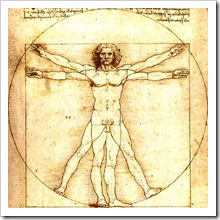 The originator of the theory of multiple intelligences, Howard Gardner, ; a ; professor ; of ; education ; at ; Harvard ; University, ; defines intelligence as the potential ability to process a certain sort of information. ; The ; different ; types ; of ; intelligence ; are ; for ; the ; most ; part independent of one another, and no type is more important than the other.
The originator of the theory of multiple intelligences, Howard Gardner, ; a ; professor ; of ; education ; at ; Harvard ; University, ; defines intelligence as the potential ability to process a certain sort of information. ; The ; different ; types ; of ; intelligence ; are ; for ; the ; most ; part independent of one another, and no type is more important than the other.
In ; all, ; Gardner ; identifies ; seven ; different ; types ; of intelligence. These can be summarised as follows:
1. Verbal = linguistic, e.g. lexical skills, formal speech, verbal debate, creative writing.
2. ; Body = kinesthetic (movement), e.g. body language, physical gestures, creative dance, physical exercise, drama.
3. ; Musical = rhythmic, ; ; e.g. ; ; music ; ; performance, ; ; singing, ; musical composition, rhythmic patterns.
4. ; Logic = mathematic, ; ; e.g. ; ; numerical ; ; aptitude, ; ; problem solving, deciphering codes, abstract symbols and formulae.
5. ; Visual = spatial, e.g. patterns and designs, painting, drawing, active imagination, sculpture, colour schemes.
6. ; Interpersonal ; ; (relationships ; ; with ; ; others), ; ; e.g. person-to-person communication, empathy practices, group projects, collaboration skills, receiving and giving feedback.
7. Intrapersonal (self-understanding and insight), e.g. thinking strategies, emotional processing, knowing yourself, higher order reasoning, focusing=concentration.
Form the book "THE COMPLETE BOOK OF INTELLIGENCE TESTS" by Philip Carter, Published by John Wiley & Sons Ltd 2005.
Opinion:
I remember running into this a few years ago, I was very intrigued at it’s premise. ; I have long suspected that the classic IQ test is inadequate – I have certain friends that are brilliant with their hands, or amazing musicians, yet the classic IQ test rates them as not-so-intelligent.
I assert; that the classic IQ test is a dangerous touchstone because of it’s authoritative position in society – some people score well and can erroneously conclude that they are of superior intelligence (which is a classic characteristic of incompetence), yet other people may score low on the test and internalise an inferior sense of competence.
I favour Howard Gardner’s proposal, as it accounts for relevant variables that the class IQ Test dismisses.
SOURCE: Caveman Power – Read entire story here.

